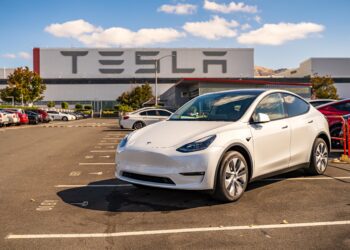Data from car manufacturers’ associations reveal the six largest markets in terms of electric passenger car sales during 2018.
As the the Geneva International Motor Show opens its gates on March 7 and many of the world’s largest car manufacturers present their latest designs and concepts to the general public for the first time, recent data studied the six largest markets in terms of electric passenger car sales in 2018.
According to data collected from car manufacturers’ associations and other industry groups, China is by far the largest market for electric passenger cars in terms of unit sales, while Norway leads in terms of electric vehicle market share.
Data released by the China Passenger Car Association (CPCA) said China’s new energy passenger vehicle (PV) wholesale volume in December hit a record high of 159,751 units, leaping 62% over a year ago.
China is charging full speed ahead into electric vehicles, on track to sell over 2 million EVs this year, from 1.1 million in 2018. The rapid growth has been driven partly by policy, but increasingly by consumer demand.


Norway
Norway keeps showing the rest of the world how fast electric vehicle (EV) adoption can happen.
According to Electrek, during 2018, EV sales grew by 40% in Norway and 1 out of 3 vehicles sold in the market was a zero-emission vehicle.
According to the Norwegian Road Traffic Information (OFV) via NTB, out of the 147,929 new passenger cars registered in 2018, 31.2% were all-electric vehicles.
The Nissan Leaf was the most popular all-electric vehicle in the market.
The Model 3 is set to give EVs a great 2019 in Norway.
Germany
According to Business Insider, German automakers — including BMW, Daimler, and Volkswagen (VW) — will spend about $45 billion on electric vehicle (EV) technology over the next three years, according to a new report from VDA, a German auto-industry trade group.
German autos will need these EV investments to translate directly to cheaper vehicle prices to boost sales abroad. In Western Europe, over half of all EVs on the road were made by German companies, per VDA.
But in the U.S., for instance, they only control about 16% of the EV market. The issue could be price, a top barrier to EV adoption: BMW’s i3 costs over $44,000 in the US, while Porsche’s first-ever EV, the Taycan, will cost over $130,000.
United States
Total U.S. EV sales came in at 361,307 for the year — up 81% over 2017 — according to the tracking website Inside EVs.
The Toyota Prius Prime was the second-bestselling EV of 2018, with 27,595 units sold. GM’s Model 3 challenger, the Chevy Bolt, made the top 10 list but was well behind the market leader, with just 18,019 sales for the year.
Click here to see which were America’s best-selling luxury vehicles during 2018.














